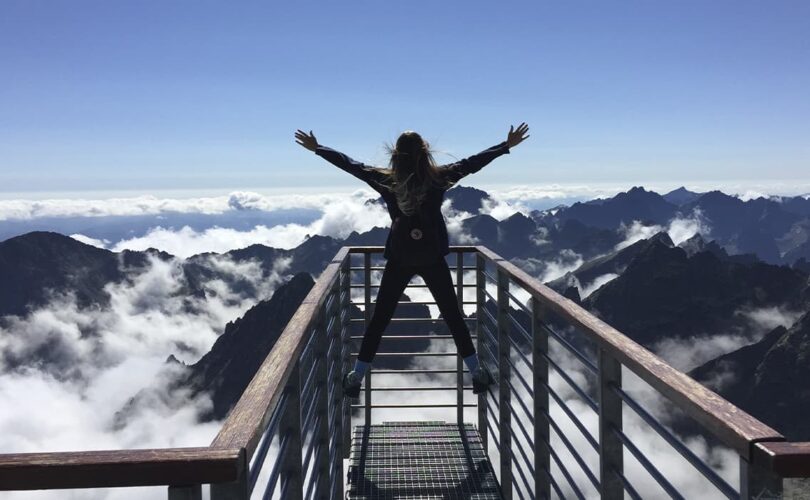Geography: Slovakia is a state in Central Europe. It borders Poland and the Czech Republic to the north, Austria to the west, Hungary to the south, and Ukraine to the east.
Capital: Bratislava
Currency: Euro
Climate: Moderate continental climate. Temperature in winter from 5 to -5 °С, in summer 22-28 °С.
Language: Slovak.
Population: The basic population are Slovaks. Also in this country live Hungarians, Ukrainians, Czechs.
Religion: Catholicism.
Transport in Slovakia: The main mode of transport for Slovaks are private cars. To move around Slovakia you can use buses or train.
Passing the border:
When going through passport control, you must show your passport with a visa, you may also be asked to show: air ticket, voucher, cash (cash, traveler’s checks, credit card).
Receiving baggage:
In the arrivals hall, read on the monitors in which section luggage from your flight will be issued. Your luggage will generally arrive fairly quickly; luggage carts at airports are either free or require a deposit (1€).
Hotel accommodation
When checking into a hotel, you must present your voucher. Check-out time in most hotels is 12:00, however, sometimes rooms may be ready later (15:00-16:00), in which case you can leave your things in the hotel luggage room. In case of problems with accommodation, please contact a representative of our host.
Upon departure from the hotel: Check-out time is usually 09:00 – 12:00. Do not forget to pay in advance for additional hotel services (telephone calls, use of the mini-bar, laundry and dry cleaning services, etc.).
Before using a service, find out how much it costs. In case of conflicts with hotel or restaurant management (e.g. refusal to pay for services), management representative has the right to act in accordance with Slovak rules and laws.
Car hire: Slovakia has excellent roads and extensive highway network. If you wish you can rent a car (our partners will kindly help you). On average the price of car rental varies depending on the class of the car, and the price can range from 35 to 70 euros per day. Gasoline is paid additionally. The cost of a liter of gasoline is 1.45-1.85 euros/liter.
Stores
All stores are open daily except Sundays. Grocery stores are usually from 7 a.m. to 7 p.m., others from 9 a.m. to 6 p.m. or 7 p.m. Between 8 p.m. and 5 a.m. you can buy groceries at stores marked VECIERKA. Smaller stores are usually closed for the lunch hour.
If you need medical help, call your insurance company representative immediately at the telephone number listed on the policy and give the following information: name, date of birth, policy number. A representative of the company will find out what happened, where you are, explain how to behave in this situation and what compensation you can count on, and, if necessary, refer you to a doctor. In this case, the visit to the doctor and the subsequent treatment will be paid by the insurance company; in some cases, it may be necessary to pay the costs of treatment on site (only by agreement with the insurance company). In this case, the costs incurred by the tourist on an insured event will be refunded by the Moscow office of the insurance company after the trip, with supporting documents.
If a tourist goes to the doctor on his/her own, then be prepared to pay the doctor’s full amount locally, and not to claim full reimbursement of the expenses from the insurance company.
Useful tips
If you are afraid of losing your passport, it’s enough to have photocopies of visa and photo pages, and keep the original in a safe place (for example, in the hotel safe). If you have been arrested and taken to a police station, the first thing you should do is contact the consular service of the embassy. If you have been stopped for a traffic violation, the police officer will charge you a fine and write a receipt. The same applies to speeding violations. Arguing with the police officer is not accepted, it will not lead to anything good. If you get lost, it is better to go to the nearest intersection to determine which streets intersect here, and then look at the map. If you have been robbed, go to the nearest police station or simply to the nearest police officer, and then to the consulate. To prevent this from happening, do not carry large sums of money and it is better to make photocopies of documents and carry them instead of the originals, keep an eye on your wallet, video camera, camera, etc. If you lose your passport – go immediately to the nearest police station, then call the consulate. If you lost your credit card, call the bank security office, they will block your card so that it cannot be used, and then the bank will send you a new one at the address you gave. It usually takes at least a week for the new card to arrive.
